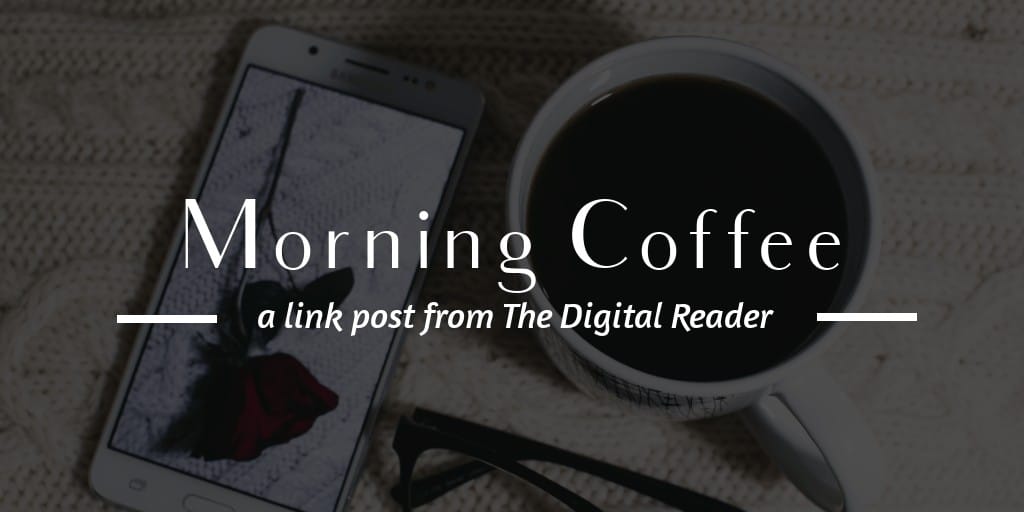Yes, Trigger Warnings Could Lead to Censorship

Professors and student advocates at some US universities have been debating whether classes which read certain types of literature should add a "trigger warning" to the class syllabus to warn students suffering from PTSD or who were victims of assault that a book might trigger an incident.
There’s been a lot of debate on this topic, with some going so far as to ridicule the idea, and on the other end of the spectrum propose trigger warnings for "heterosexism, cissexism, ableism, and other issues of oppression". As someone who is in principle in favor of the idea, I have been sitting out the debate, but today I decided to jump in and address one of my concerns that some have discarded out of hand.
Rebecca Schinsky, writing over at Book Riot, doesn’t see any reason why we should be worried about censorship:
Some of these pieces equate skipping a book that contains material that might trigger you with intellectual laziness and an unwillingness to be offended (that is: the writers of these pieces do not really understand what it is to have triggers). Others mount the hand-wringing slippery slope argument that trigger warnings will put us one step closer to book bannings (that is: they fail to acknowledge the significant differences between individual discretion and institutionalized, government-enforced censorship).
What Rebecca fails to acknowledge is that there are more types of censorship than government-enforced censorship. For example, there is the subtle commercial censorship system of the MPAA ratings. While that appears to be voluntary, any movie without an MPAA rating will have a difficult time getting into movie theaters. Similarly, any movie with an NC-17 rating simply won’t be shown.
And given that the MPAA’s ratings board has at times explicitly said that you need to change this, that, and the other in order to get a lower rating, this is a form of censorship:
And that’s not the only reason to be concerned. Here in the US we have a censorship issue on the local level.
It’s called book banning.
To name one example, it was only a couple months ago that an Idaho school district banned Sherman Alexie’s Absolutely True Diary of a Part-Time Indian, over the protests of students, teachers, and parents.
The book makes reference to masturbation, contains profanity and has been viewed by many as anti-Christian. Some Meridian School District parents and students cautioned the board about banning the book, while others labeled it pornographic and racist.
What Rebecca fails to acknowledge is that if trigger warnings become more widespread, if it becomes common for books to be listed in catalogs with trigger warnings, then we will be handing the book banners another weapon in their fight to remove literature from libraries and schools. We might even see parents groups pressuring schools and libraries to not buy these books in the first place, simply because they come with a trigger warning. And if that happens, we are all going to be harmed.
So yes, when someone raises concerns of censorship, they’re not misstating the case, they’re not misunderstanding the situation, and they’re not, as Rebecca put it, wringing their hands.
In conclusion, when The Guardian pointed out that trigger warnings were "one small step from book banning", they were not wrong:
Of course, life doesn’t come with a trigger warning, even if it should. And while a classroom conversation about emotionally fraught subjects would seem not only advisable but also just part of any decent teaching method, slapping a trigger warning on classic works of literature seems a short step away from book banning, a kind of censorship based on offenses to individual feelings.
And as the idea of trigger warnings moves forward, we need to keep the potential downsides in mind. The best way to avoid trigger warnings being misused is to not develop a system where they can be misused.
image by simonov


Comments
Will Entrekin May 22, 2014 um 9:55 am
Is it really like the MPAA ratings, or is it more like HBO noting within its movie listings or before, say, Game of Thrones, that the following program will be containing adult situations, profanity, nudity, and violence (that’s how you know the good programs!)?
Just an example, me personally, I like to be informed when a movie’s or show’s plot will include September 11 somehow. It happens rarely, but sometimes even an allusion or similar situation can trigger me. I remember watching The Dark Knight Rises and the moment Bane blows up all Pittsburgh’s bridges; at the time, I was relieved I’d read a little about that particular detail. I’m thinking, too, of Irreversible, which prompted theaters to warn ticket buyers ahead of time regarding a few scenes (a really graphic scene of violence at the beginning and a harrowing, long rape scene in the middle). Well. The theater I went to, anyway. And I didn’t mind either, but I saw a few theater-goers watch the movie in spurts, leaving during a given scene and then returning five minutes later.
Nate Hoffelder May 22, 2014 um 10:39 am
At this point it is more like the warnings before movies than the MPAA system, yes. But that doesn’t allay my concerns about how it might be misused in the future.
Jaylat May 22, 2014 um 1:12 pm
Hey Nate, I agree with you on this one. Another good analogy might be the Comics Code Authority and the censorship that it engendered in the 1950’s.
Nate Hoffelder May 22, 2014 um 1:36 pm
That is another good example of a "voluntary" censorship code, yes.